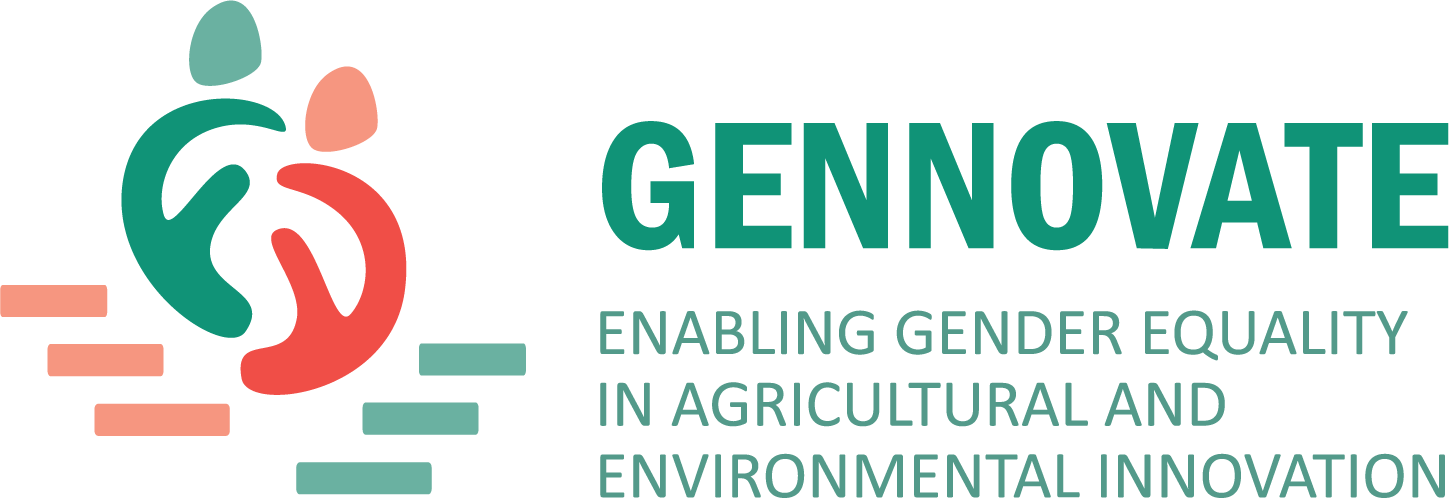Methodology & Sample
Qualitative comparative methodology
GENNOVATE’s research design builds on the approach developed and refined by three World Bank global studies: Voices of the Poor, Moving Out of Poverty, and On Norms and Agency. The GENNOVATE Methodology (download the full pdf here) features a comparative case study method, qualitative data collection sensitive to local circumstances, standardization of instruments, and purposive sampling techniques. Together these elements allow broad patterns to be detected without losing their grounding in local contexts and realities. The analytic approach is informed by a conceptual framework based in feminist and innovation theories and the notion of agency-opportunity structure interactions. To answer the study’s research questions, GENNOVATE used a community-level case-study approach. A case refers to a social group living in a single locality that the inhabitants call their village, community, or hamlet. In each research village, field teams applied a standardized package of seven data collection instruments, which include a mix of focus groups, semi-structured individual interviews, key informant interviews, and a literature review. Study participants included equal numbers of women and men. The tools were piloted in villages in Mexico and Uganda; and three regional training of trainer events prepared the principal investigators (PIs) for managing the fieldwork. Data collection began in April 2014 and concluded in early 2016.
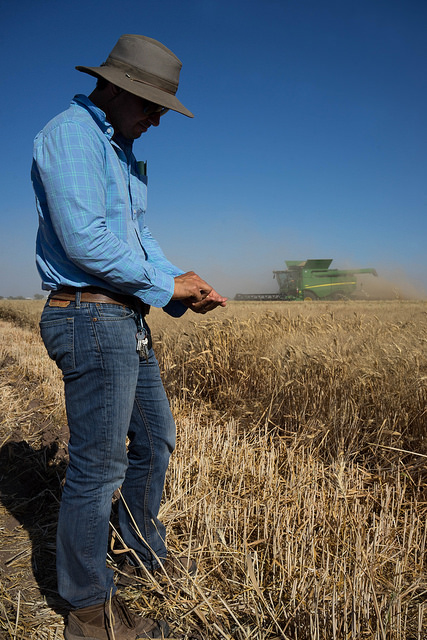
Conceptual framework
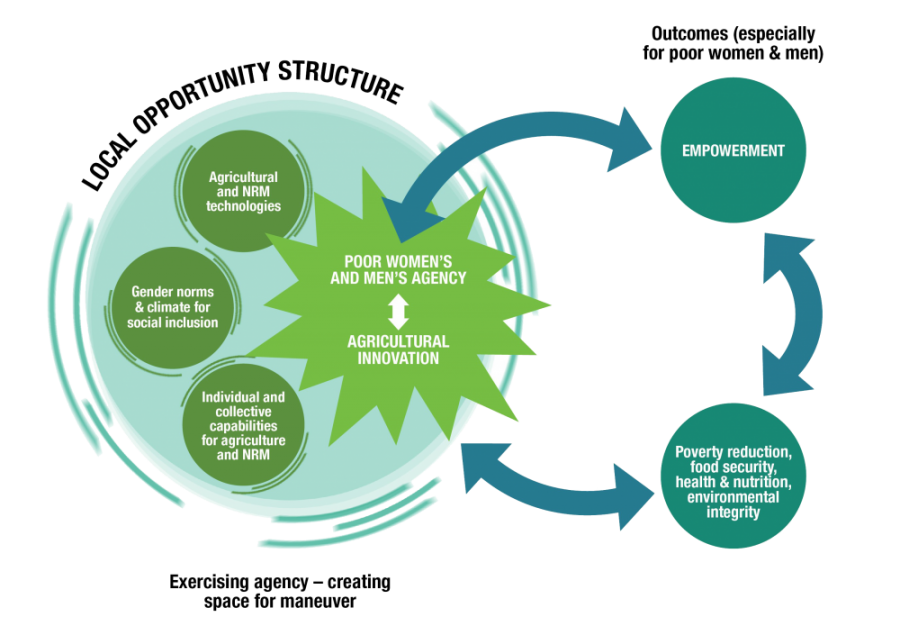
Variable-oriented & contextual analysis
The data analysis plan features in-depth case study techniques to explore the study questions holistically in specific contexts. This is combined with variable-oriented qualitative analytic techniques that draw on GENNOVATE’s coded dataset. Teams based in Mexico and Peru were trained to conduct systematic content analysis with NVivo social science software, and coding of all 137 cases was completed in mid-2016.
Sample
Case selection is based on the principles of maximum diversity sampling, which seek to uncover important regularities that cut across heterogeneous population groups and contexts sampled. GENNOVATE’s individual village-level cases were selected purposively to ensure strong variance at multiple scales. First, the cases are scattered across regions and countries, with concentrations in Africa and South Asia to not only reflect CGIAR investment priorities but also to capture macro-level differences in gender structures. Within countries, cases are selected to deliver strong variance on two dimensions theorized to be important for outcomes: i) economic dynamism and ii) gender gaps in assets and capacities. Case selection is also informed by the CRPs’ activities in the research areas. GENNOVATE’s 137 village cases are based in the following three regions and 26 countries:
Asia: Afghanistan, Bangladesh, India (Bihar, Madhya Pradesh, Punjab, Uttar Pradesh), Indonesia, Kyrgyz Republic, Nepal, Pakistan, Philippines, Uzbekistan, Vietnam
Africa: Burkina Faso, Burundi, Democratic Republic of the Congo, Ethiopia, Kenya, Malawi, Mali, Morocco, Niger, Nigeria, Rwanda, Tanzania, Uganda, Zimbabwe
Latin America: Colombia, Mexico
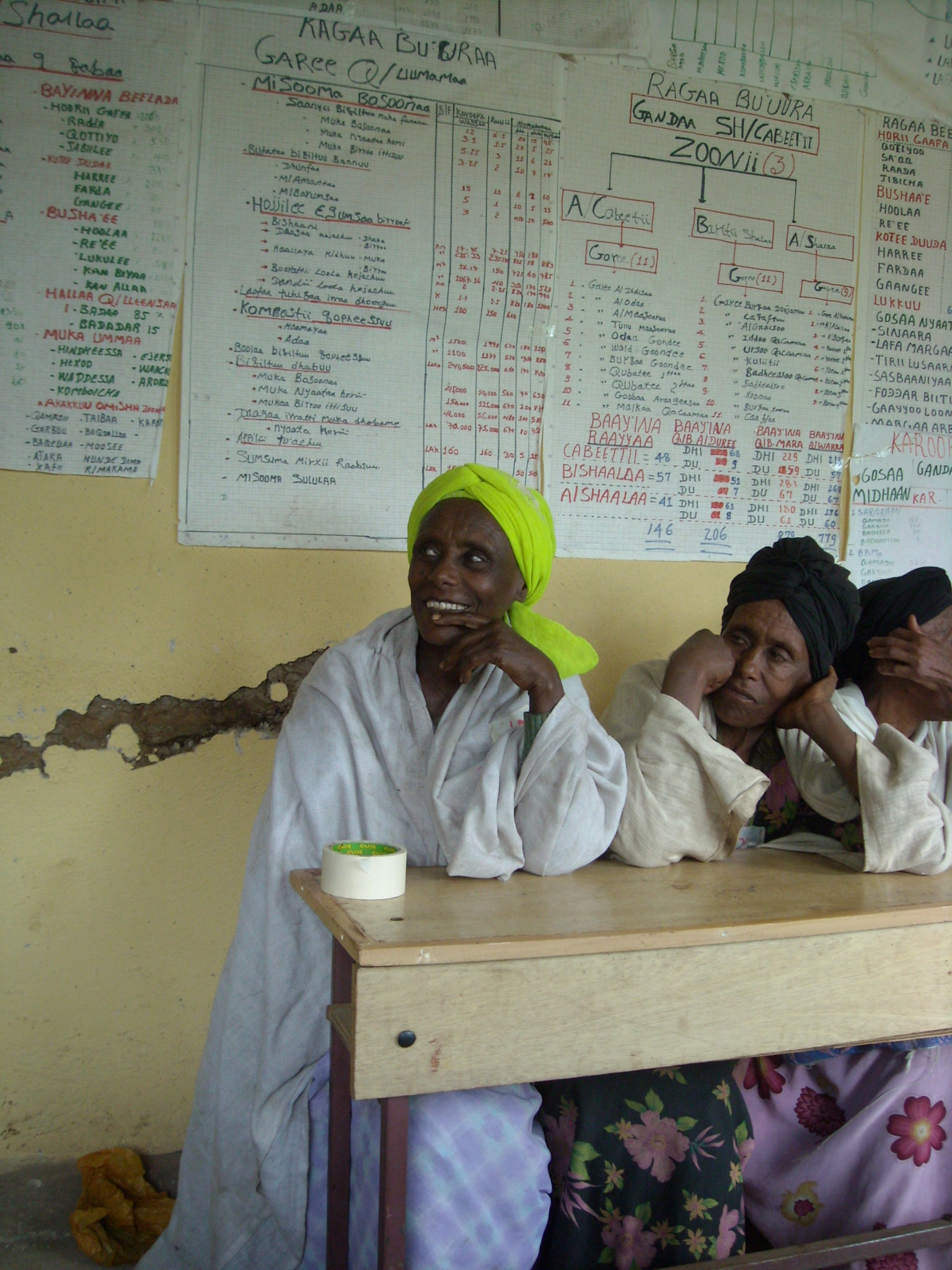
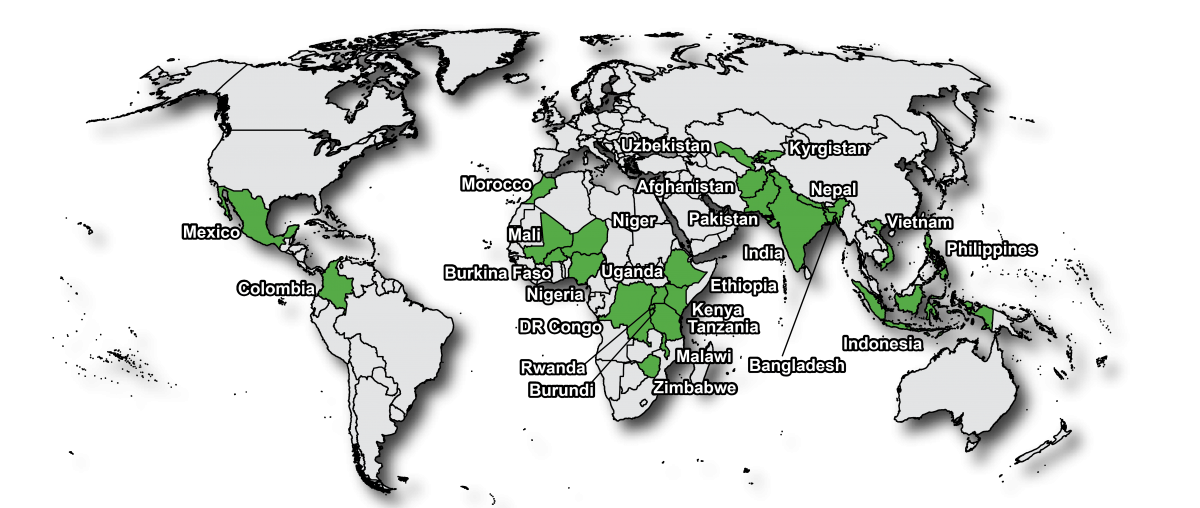
Contact us
For more information, please contact Marlène Elias, CGIAR GENDER Platform Alliances Module leader and Senior Scientist at the Alliance of Bioversity International and CIAT, marlene.elias@cgiar.org

